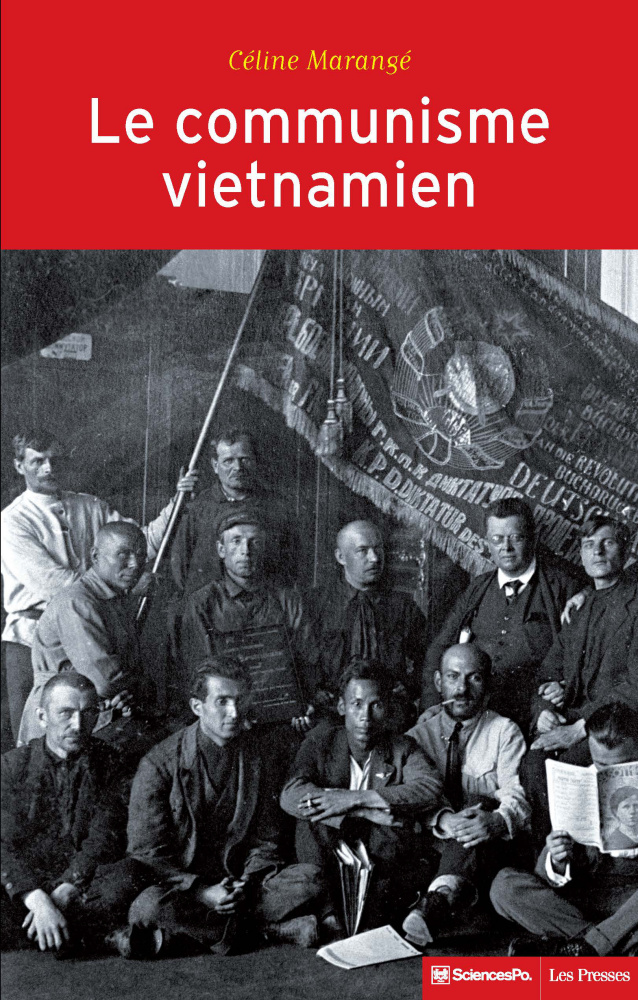Le communisme vietnamien (1919-1991)
Construction d'un État nation entre Moscou et Pékin
First Edition
How did Vietnamese Communists succeed within 50 years in overthrowing colonial rule, keeping the American army at bay and conquering the South in 1975? The first exhaustive study on Vietnamese communism in over 30 years ! Read More
In 50 years, Vietnamese Communists succeeded in overthrowing colonial rule, then in keeping the American army at bay and conquering the South in 1975.
Although they persistently drew their inspiration from Soviet and Chinese models of power conquest and organization of social and political life, Vietnamese communists managed nevertheless to forge an autonomous path – founded first upon anti-colonialism, then on warfare –, and developed a strategy of regional influence.
Based on extensive fieldwork and uncovered sources in five languages, this book adds nuance to French historiography of international communism and breaks with Vietnamese historiography. It explores the intermittent crises in relations between Hanoi, Beijing and Moscow. It sheds new light on the inner workings of the Comintern, the history of three Indochinese wars, the relations between communist countries and the effects of the Sino-Soviet split. Using the perspective of global history, it examines the conditions of imposition, and also appropriation, of foreign modes of government. Finally, to reconstruct the atmosphere and political culture of multiple periods, it brings to life a myriad of actors, either forgotten in time or passed on through generations.
The first exhaustive study on Vietnamese Communism in over 30 years, this exemplary work, written in a clear and lively manner, will captivate both specialists and history lovers.
Céline Marangé is a political historian who received a PhD in political science from Sciences Po Paris in 2010. She is a lecturer at Columbia University in New York. A graduate of the National Institute of Oriental Languages and Civilizations in Paris, France, she is also a Russian translator.
Specifications
- Publisher
- Presses de Sciences Po
- Author
- Céline Marangé,
- Collection
- Académique
- Language
- French
- Tags
- Publisher Category
- > Fields > History
- Publisher Category
- > History field > History by period
- Publisher Category
- > History field > History by subject
- Publisher Category
- > History
- Publisher Category
- > History field
- BISAC Subject Heading
- POL000000 POLITICAL SCIENCE
- Onix Audience Codes
- 06 Professional and scholarly
- CLIL (Version 2013-2019)
- 3283 SCIENCES POLITIQUES
- Title First Published
- 10 May 2012
- Subject Scheme Identifier Code
- Thema subject category: Politics and government
Paperback
- Publication Date
- 30 June 2008
- ISBN-13
- 978-2-7246-1098-7
- Code
- 9782724610987
- List Price
- 25.00 €
- ONIX XML
- Version 2.1, Version 3
ePub
- Publication Date
- 01 January 1992
- ISBN-13
- 9782724686067
- Product Content
- Text (eye-readable)
- Extent
- Main content page count : 288
- Code
- 9782724686067
- ONIX XML
- Version 2.1, Version 3
Google Book Preview
Contents
Remerciements
Table des illustrations
Table des documents annexes
Sigles, abréviations et acronymes
Notes sur la présentation
Introduction
Chapitre 1 / À la croisée des chemins : communisme russe et anticolonialisme vietnamien (1919-1931)
Le Komintern et les militants anticolonialistes vietnamiens (1919-1923)
Hồ Chí Minh, agent du Komintern à Moscou et à Canton (1923-1925)
L'émergence du communisme vietnamien (1925-1928)
La fondation d'un parti sous influence (1929-1931)
Chapitre 2 / Les modèles stalinien et maoïste au service de la « révolution nationale » vietnamienne (1931-1945)
La matrice stalinienne du parti (1931-1936)
Les revirements face à la montée des périls (1936-1939)
Le retour au combat anticolonial avec des méthodes maoïstes (1939-1944)
La prise de pouvoir des « retours de Russie » (1945)
Chapitre 3 / La stratégie du Vietminh pour gagner l’indépendance (1946-1953)
La voie étroite des négociations (1946)
L’épreuve du feu : vers la « guerre du peuple » (1947-1948)
La victoire des communistes chinois : vers la guerre conventionnelle (1949-1952)
Le passage à la guerre révolutionnaire après la mort de Staline (1953)
Chapitre 4 / Le « camp socialiste » dans la résolution du conflit indochinois : entre Realpolitik et idéologie (1954)
Une stratégie communiste concertée à la veille de la conférence de Genève (janvier-avril)
Les risques d’escalade du conflit indochinois : la première phase des négociations (26 avril-15 juin)
Vers une division du Vietnam ? La deuxième phase des négociations (16 juin-10 juillet)
Les tractations finales en faveur d’une partition (10-21 juillet)
Chapitre 5 / Sujétion et révolution à l’intérieur : la période chinoise (1951-1959)
La guerre contre l’ennemi intérieur (1951-1952)
La réforme agraire, instrument de la révolution (1953-1955)
Une amorce de déstalinisation ? (1956)
Un retour à l’orthodoxie maoïste ? (1957-1959)
Chapitre 6 / La stratégie autonome des communistes vietnamiens pour conquérir le Sud (1960-1971)
La querelle sino-soviétique (1960-1962)
Le ralliement à Pékin du parti vietnamien (1963)
L’instabilité des alliances après le déclenchement des hostilités (1964-1965)
La conquête de l’autonomie par la guerre (1966-1971)
Chapitre 7 / Alliance de circonstance et interdépendance inégale : la période soviétique (1971-1991)
Rapprochement et distanciation (1971-1975)
L’échec de la politique vietnamienne d’équidistance (1975-1978)
Une alliance fondée sur l’hostilité à la Chine (1979-1985)
L’impact de la « nouvelle pensée » gorbatchévienne (1986-1991)
Chapitre 8 / Les modes d’exercice du pouvoir : une hybridation des modèles soviétique et chinois (1975-1991)
La révolution en action
Le renforcement de la « légalité socialiste »
La glasnost et le renouveau politique
Un vernis de légalisme
Chapitre 9 / Les communistes vietnamiens confrontés à la question de l’unité nationale (1930-1991)
L’expansion territoriale comme mode de consolidation de l’État
Les mobilisations politiques des minorités ethniques
Le déploiement de l’État socialiste dans les montagnes
La création d’un roman national
Conclusion
La force du faible
L’ambiguïté des rapports d’emprunts
La nature du parti-État vietnamien
Les dirigeants du Parti
Notices biographiques
Documents annexes
Chronologie
Notes sur la recherche
Bibliographie
Index des noms de personnes
Table des matières

